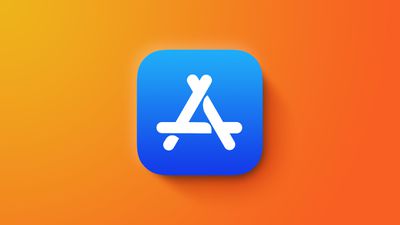Developers May Soon Be Able to Automatically Charge Apple Users for Subscription Price Increases
Apple appears to be testing a new feature that would allow developers to automatically charge users when a subscription price goes up, according to TechCrunch.

Right now, Apple asks customers to explicitly agree to subscription pricing increases when the cost of a subscription goes up. If a customer does not tap on the presented "Agree to New Price" button, their subscription is automatically canceled. But if the new functionality that Apple is testing rolls out, customers may simply be notified of an upcoming change, rather than being given the choice to cancel. Essentially, Apple is testing an opt-out system rather than an opt-in system for subscription pricing changes.
When Disney+ recently increased its prices to $7.99 per month, some developers noticed that the Disney+ app sent out a notification that was more of an alert about a price increase rather than a clear opt-in choice. Disney+ subscribers received a notification with a large "OK" button letting them know about the change, but there was no built-in opt-out button, with the app instead providing a link to change the subscription.
Other developers noticed similar behavior for different subscriptions, and an Apple spokesperson confirmed to TechCrunch that it is running a pilot test on a new subscription system.
"We are piloting a new commerce feature we plan to launch very soon. The pilot includes developers across various app categories, organization sizes, and regions to help test an upcoming enhancement that we believe will be great for both developers and users, and we'll have more details to share in the coming weeks," the spokesperson said.
If this change rolls out more widely, App Store users will need to keep a closer eye on their subscriptions, as it will be easier for a pricing increase to go under the radar without the express opt-in system that's currently in place.
Apple would not provide more details on the pilot test, and did not offer information on the apps that are currently involved or when the feature might roll out more widely to all developers.
Popular Stories
While the iPhone 17 Pro and iPhone 17 Pro Max are not expected to launch until September, there are already plenty of rumors about the devices.
Below, we recap key changes rumored for the iPhone 17 Pro models as of April 2025:
Aluminum frame: iPhone 17 Pro models are rumored to have an aluminum frame, whereas the iPhone 15 Pro and iPhone 16 Pro models have a titanium frame, and the iPhone ...
Apple may have updated several iPads and Macs late last year and early this year, but there are still multiple new devices that we're looking forward to seeing in 2025. Most will come in September or October, but there could be a few surprises before then.
We've rounded up a list of everything that we're still waiting to see from Apple in 2025.
iPhone 17, 17 Air, and 17 Pro - We get...
A common complaint about the iPad Pro is that the iPadOS software platform fails to fully take advantage of the device's powerful hardware.
That could soon change.
Bloomberg's Mark Gurman today said that iPadOS 19 will be "more like macOS."
Gurman said that iPadOS 19 will be "more like a Mac" in three ways:Improved productivity
Improved multitasking
Improved app window management...
Apple's upcoming foldable iPhone (or "iPhone Fold") will feature two screens as part of its book-style design, and a Chinese leaker claims to know the resolutions for both of them.
According to the Weibo-based account Digital Chat Station, the inner display, which is approximately 7.76 inches, will use a 2,713 x 1,920 resolution and feature "under-screen camera technology." Meanwhile, the...
Apple in October 2024 overhauled its 14-inch and 16-inch MacBook Pro models, adding M4, M4 Pro, and M4 Max chips, Thunderbolt 5 ports on higher-end models, display changes, and more. That's quite a lot of updates in one go, but if you think this means a further major refresh for the MacBook Pro is now several years away, think again.
Bloomberg's Mark Gurman has said he expects only a small...
Apple is working on a new version of the Vision Pro with two key advantages over the current model, according to Bloomberg's Mark Gurman.
Specifically, in his Power On newsletter today, Gurman said Apple is developing a new headset that is both lighter and less expensive than the current Vision Pro, which starts at $3,499 in the U.S. and weighs up to 1.5 pounds.
Gurman said Apple is also...
On this week's episode of The MacRumors Show, we catch up on the latest iOS 19 and watchOS 12 rumors, upcoming devices, and more.
Subscribe to The MacRumors Show YouTube channel for more videos
Detailed new renders from leaker Jon Prosser claim to provide the best look yet at the complete redesign rumored to arrive in iOS 19, showing more rounded elements, lighting effects, translucency, and...
It was a big week for leaks and rumors in the Apple world, with fresh claims about iOS 19, the iPhone 17 Pro, and even the 20th anniversary iPhone coming a couple of years from now.
Sources also spilled the tea on the inner turmoil at Apple around the Apple Intelligence-driven Siri revamp that has seen significant delays, so read on below for all the details on these stories and more!
iOS ...
Apple and other electronics manufacturers have received a break from Trump's reciprocal tariffs, with the U.S. Customs and Border Protection agency sharing a long list of products excluded from the levies last night.
iPhones, Macs, iPads, Apple Watch, and other Apple devices will not be subject to the 125 percent tariffs that have been put in place on imported Chinese goods, nor will Apple...
























